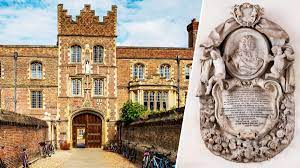On 23 March 2022, the Ecclesiastical Court handed down its judgment relating to the memorial to Tobias Rustat, the 17th-century benefactor to Jesus College Cambridge. The court determined that the Rustat memorial should not be removed from the College’s Grade I listed chapel.
The hearing took place over three days in the ecclesiastical court. In his judgment, the Judge, David Hodge QC, refused Jesus College’s application to relocate the memorial to a secular exhibition space. The College’s links to Rustat came under scrutiny due to his investments in the Royal African Company and the Royal Adventurers, two organisations that trafficked and traded enslaved Africans in the 17th Century.
Jesus College sought the removal of the memorial and were in opposition to an alliance formed by College alumni and Rustat’s descendants who contended that the memorial should stay in the chapel. The College argued that the memorial to Rustat meant that the chapel was not a “safe space” for those who entered the building and that it caused “pain and discomfort” to the Master of the College. The College added that the benefit to the public in removing the memorial would “substantially outweigh” the risk of any damage that its removal might cause to the building.
While it is not in dispute that Rustat was involved in the slave trade, the Judge noted that Rustat had “no financial returns at all” from his involvement with the Royal Adventurers and his contributions to the Royal African Company were made some 20 years after his donations to the College and five years after the completion of the memorial. While the Judge acknowledged that Rustat’s decision to invest in the slave trade was questionable, the court held that it was a “false narrative” that Rustat gained much of his wealth from the slave trade and that this money was used to support the College. The Judge added that in keeping the memorial in the chapel it could be used as a “vehicle to consider the imperfection of human beings”.
This decision has potentially far-reaching ramifications within the Church of England, as well as many other institutions, where monuments dedicated to figures from history who may have links to the slave trade or other historical events which are coming under scrutiny, are common place.
The College are considering whether to appeal to the decision.
If you would like to discuss any of the issues raised in this article, please contact Howard Dellar or Ian Blaney to discuss further.
Howard Dellar of Lee Bolton Monier-Williams acted as Registrar of the Consistory Court, assisted by Susan Black and Stephen Borton.


